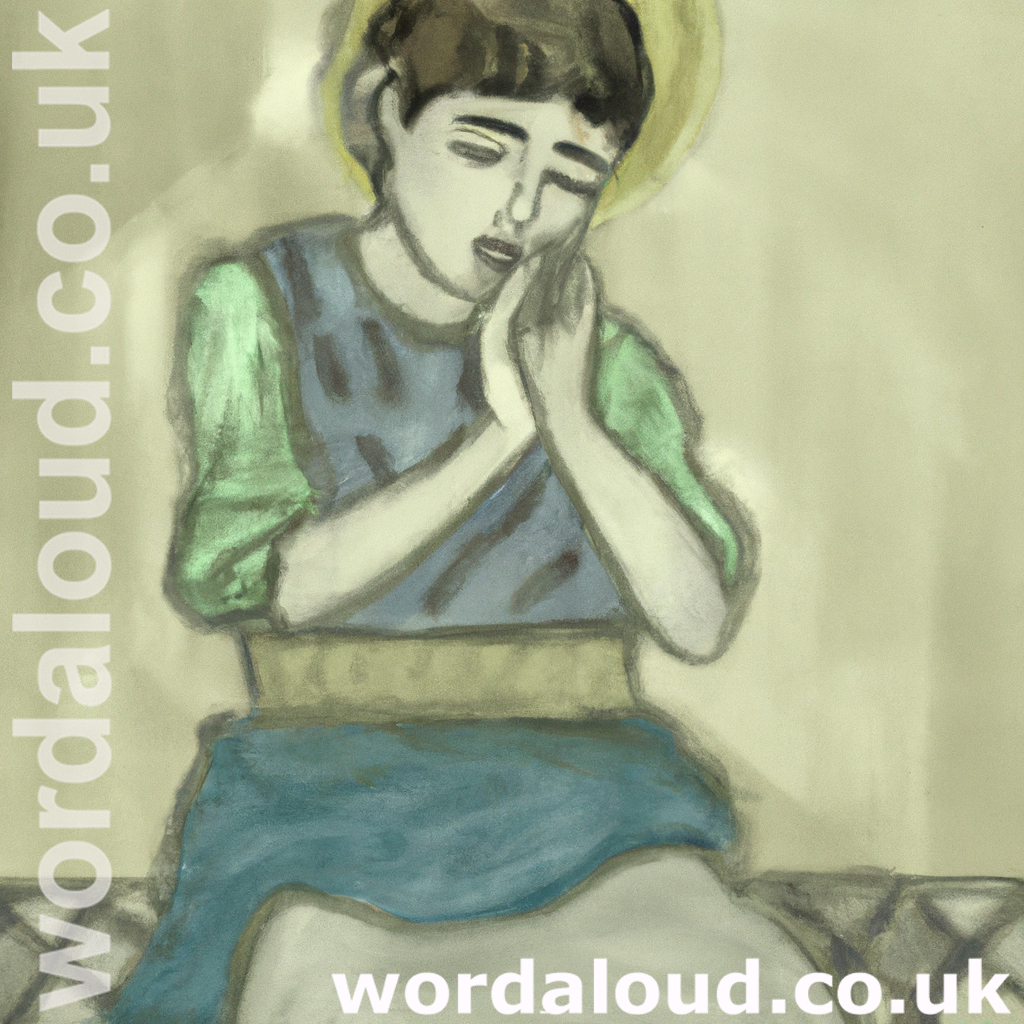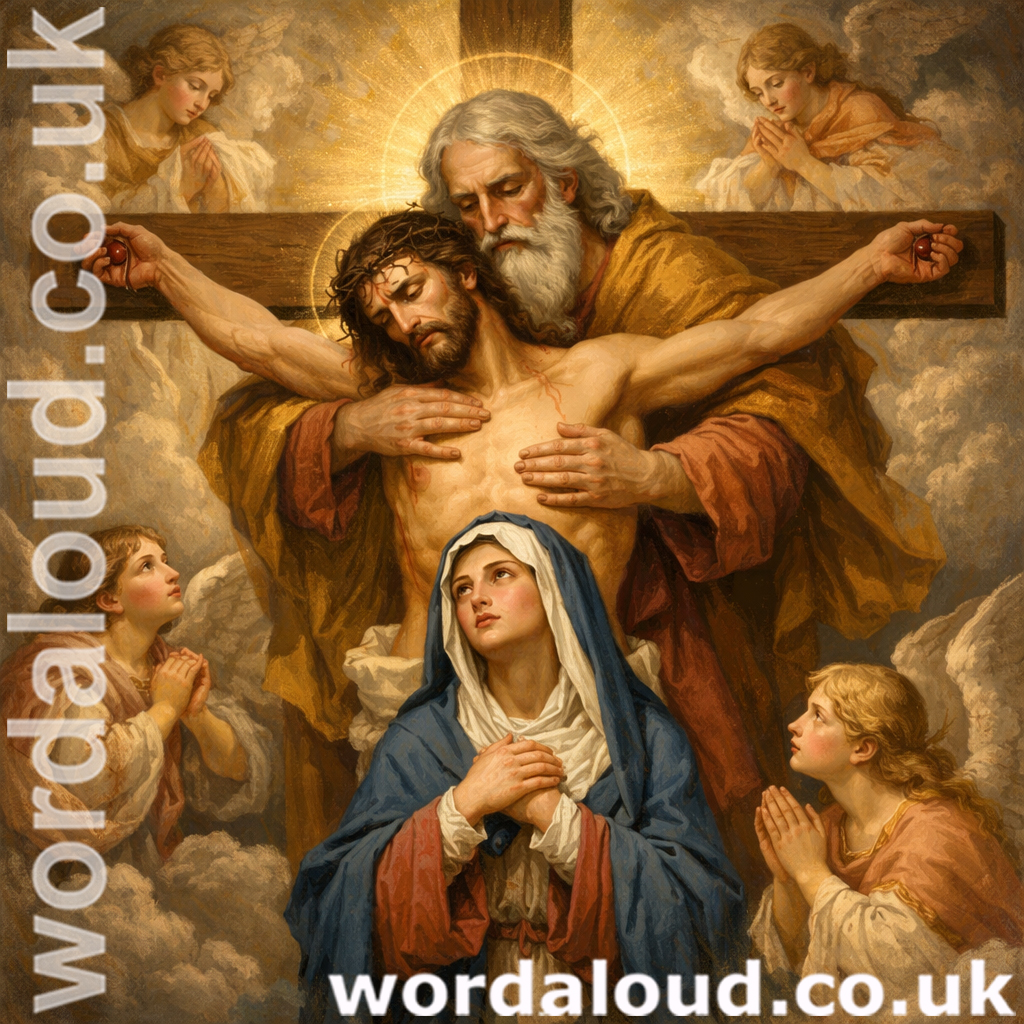Christian Art | Baptism | Love Revealed By Jesus Christ | A Boy Baptized
Office Of Readings | Eastertide Week 3, Wednesday | A Reading From The First Apology Of Saint Justin Martyr In Defence Of The Christians
‘Baptism – the bath of rebirth.’
Illumined In Christ | Saint Justin Martyr On Baptismal Regeneration
In the season of Eastertide, when the Church celebrates the Risen Christ and the new life Jesus brings, the Office of Readings offers a passage from the First Apology of Saint Justin Martyr that invites us to return to the wellspring of that life—Holy Baptism. In this passage, Saint Justin, writing in the mid-2nd century, provides one of the earliest extra-biblical descriptions of Christian baptism. His account is not only historically significant but theologically rich, revealing how the early Church understood baptism as a conscious, transformative rebirth through Christ, in the power of the Holy Spirit.
Baptism As New Life In Jesus Christ
Justin begins by affirming that through Christ, Christians ‘received new life and consecrated ourselves to God’. This statement echoes the language of the Pauline epistles, where baptism is consistently associated with dying and rising with Christ (cf. Romans 6:3–4). For Justin, baptism is no mere ritual; it is an existential transition from death to life, from sin to righteousness, from ignorance to truth. This new life is not imposed but embraced. Those who seek baptism must first believe the truth of Christian teaching and express a desire to live in accord with it. In Justin’s time, this meant a period of catechesis, prayer, and fasting, in which the convert prepared spiritually and morally for the grace to come.
This preparation speaks volumes about the nature of the sacrament. While God is the actor in baptism, the human person must freely respond. Justin insists on the convert’s personal assent—an awareness that baptism is not simply a physical washing but a conscious entry into the life of God. In this, we see a remarkably mature theological anthropology: human beings are created to respond freely to God’s call, and baptism is the moment when that freedom meets divine grace.
Scripture And The Meaning Of Baptism
To articulate the theological significance of baptism, Justin turns to Scripture. He cites both the Gospel of John and the prophet Isaiah, grounding the sacrament in the twin sources of New Testament revelation and Old Testament prophecy. From John’s Gospel, he invokes the words of Jesus to Nicodemus: ‘Unless you are born again, you will not enter the kingdom of heaven.’ Justin interprets this not as metaphor but as a divine command, fulfilled in the waters of baptism.
From Isaiah, he draws a passage that urges the people of Israel to ‘wash yourselves and be clean… remove the evil from your souls’. For Justin, this passage—originally a moral exhortation—finds its deepest fulfilment in the sacrament, where the washing of the body signifies and effects the cleansing of the soul. By linking these texts, Justin not only affirms the necessity of baptism but frames it as the fulfilment of God’s ancient promise to cleanse His people and restore them to righteousness.
This is not merely allegory. It is a sacramental hermeneutic: a reading of Scripture that sees Christ and the sacraments as the key to understanding all that God has spoken. For Justin, baptism is where prophecy and promise converge with divine action.
Freedom, Knowledge And Enlightenment
One of Justin’s most striking insights is his reflection on the difference between natural birth and spiritual rebirth. Our first birth, he notes, occurred without our consent and brought us into a world of ignorance and sin. Baptism, by contrast, is chosen. It is the moment when a person, having been taught and illumined by the truth, freely seeks regeneration. In this light, baptism becomes not only a spiritual cleansing but a moment of liberation and self-possession. The baptized Christian is no longer defined by necessity or ignorance but by grace and truth.
It is in this context that Justin introduces the concept of ‘illumination’. He writes that baptism is called illumination because of the ‘mental enlightenment’ that the recipient experiences. This term—photismos in Greek—was commonly used in the early Church to describe baptism, highlighting its role in dispelling the darkness of sin and ignorance. It was more than a moral awakening; it was a participation in divine knowledge, a new capacity to perceive spiritual reality.
Justin’s use of this term reveals the integration of his philosophical background into his theology. As a former pagan philosopher who found in Christianity the ‘true philosophy’, Justin understood salvation not only as moral restoration but as intellectual transformation. For him, to be baptized is to be given the light of Christ’s truth—the Logos who enlightens every person coming into the world. The sacrament opens the eyes of the soul, enabling one to see God and reality rightly.
Trinitarian Mystery
In describing the rite of baptism, Justin affirms that the sacrament is performed ‘in the name of God, the Father and Lord of the whole universe, of our Saviour Jesus Christ and of the Holy Spirit’. This is a clear and early testimony to the Church’s Trinitarian faith. Even in this pre-Nicene period, the Church worships and baptizes in the name of the Triune God, as Jesus commanded.
Yet Justin adds a profound theological note: the one who baptizes invokes only the name of God, for God ‘so far surpasses our powers of description that no one can really give a name to him’. This reveals Justin’s awareness of the divine mystery. While the Father, Son, and Spirit are named and invoked, their essence remains beyond human comprehension. In this tension—between the revelation of God’s name and the mystery of God’s being—lies the heart of Christian worship.
By baptizing in the Triune name, the Church does not claim to comprehend God fully but submits to the way God has revealed Himself. Baptism is thus both a confession of faith and an act of reverent awe.
Prophetic Spirit And The Fulfilment Of History
Justin concludes by affirming that the Holy Spirit, invoked in baptism, is the same Spirit who ‘through the prophets foretold everything concerning Jesus’. Here we see a pneumatology that unites the Old and New Covenants. The Spirit is not a new actor on the stage of salvation history but the eternal breath of God, active from creation to Pentecost. In the act of baptism, the Spirit who inspired the prophets now brings their words to fulfilment in the soul of the believer.
This continuity of the Spirit reveals a unified divine economy. Baptism is not a rupture with the past but the flowering of God’s plan, hidden in types and shadows, now revealed in Christ and made present through the sacraments of the Church.

A Reading From The First Apology Of Saint Justin Martyr In Defence Of The Christians
Through Christ we received new life and we consecrated ourselves to God. I will explain the way in which we did this. Those who believe what we teach is true and who give assurance of their ability to live according to that teaching are taught to ask God’s forgiveness for their sins by prayer and fasting and we pray and fast with them. We then lead them to a place where there is water and they are reborn in the same way as we were reborn; that is to say, they are washed in the water in the name of God, the Father and Lord of the whole universe, of our Saviour Jesus Christ and of the Holy Spirit. This is done because Christ said: Unless you are born again you will not enter the kingdom of heaven, and it is impossible for anyone, having once been born, to re-enter his mother’s womb.
An explanation of how repentant sinners are to be freed from their sins is given through the prophet Isaiah in the words: Wash yourselves and be clean. Remove the evil from your souls; learn to do what is right. Be just to the orphan, vindicate the widow. Come, let us reason together, says the Lord. If your sins are like scarlet, I will make them white as wool; if they are like crimson, I will make them white as snow. But if you do not heed me, you shall be devoured by the sword. The mouth of the Lord has spoken.
The apostles taught us the reason for this ceremony of ours. Our first birth took place without our knowledge or consent because our parents came together, and we grew up in the midst of wickedness. So if we were not to remain children of necessity and ignorance, we needed a new birth of which we ourselves would be conscious, and which would be the result of our own free choice. We needed, too, to have our sins forgiven. This is why the name of God, the Father and Lord of the whole universe, is pronounced in the water over anyone who chooses to be born again and who has repented of his sins. The person who leads the candidate for baptism to the font calls upon God by this name alone, for God so far surpasses our powers of description that no one can really give a name to him. Anyone who dares to say that he can must be hopelessly insane.
This baptism is called ‘illumination’ because of the mental enlightenment that is experienced by those who learn these things. The person receiving this enlightenment is also baptized in the name of Jesus Christ, who was crucified under Pontius Pilate, and in the name of the Holy Spirit, who through the prophets foretold everything concerning Jesus.

![]()








